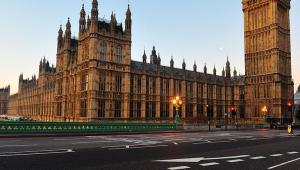Respondents to a consultation on the formula, which ended on Thursday last week, said unless deprivation levels in council areas were included when calculating funding allocations poorer areas would be worse off.
London Councils in its reponse to the consultation - on councils' relative needs and resources - noted that the group was “surprised and extremely concerned by the proposal not to include deprivation”.
This decision “should be reversed and deprivation should be included”, the group said.
In its draft response, the Society of Local Authority Chief Executives, which represents 1,500 chief executives and senior managers in the UK public sector, said poorer areas were likely to need higher funding allocations because of a greater demand on services.
It noted in its draft response that “deprived individuals, and particularly income deprived individuals, are more likely to access certain services than more prosperous individuals”.
Solace believed the decision was “odd” because there was widespread support for the inclusion of deprivation in a previous consultation on the fair funding review.
A summary of responses on the funding review published in December 2017 found that 86% of the 312 respondents to the fair funding review consultation were in favour of taking deprivation into account.
David Phillips, associate director of the Institute for Fiscal Studies think-tank, said: “The statistical analysis to justify not including deprivation in the funding formula for many key services does not stand up to full scrutiny.
“If the government does go ahead with plans to base the needs formula for services like homelessness, public transport and libraries on population only, our analysis suggests deprived councils will lose out.”
The IFS think-tank warned that the omission of deprivation would hit urban areas like London, Manchester, Birmingham, Newcastle, Bristol and Hull, where deprivation levels are highest.
The formula, the IFS said, will benefit wealthy shire counties in the South East of England. Counties like Cornwall, Lancashire and County Durham would also be hit, the think-tank said, but not to the same extent as deprived urban areas.
The Ministry of Housing, Communities and Local Government said its omission of deprivation was because population size is the main driver in variation of council spending.
But the IFS said this was “poor justification” because population size will inevitably be the main reason for differing levels of spend – it accounts for 88.1% of variation.
An MHCLG spokesperson said: “The government is currently consulting on what factors should be included in a new funding formula for local government.
“We will carefully consider the feedback before responding.”











